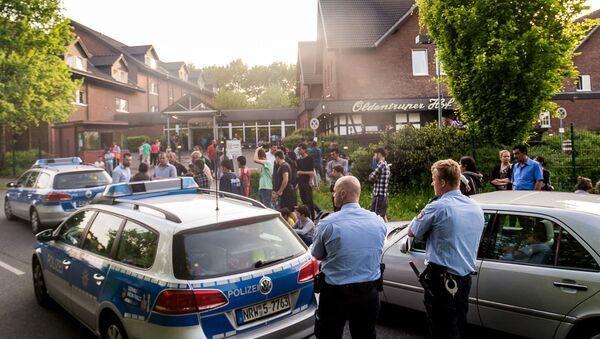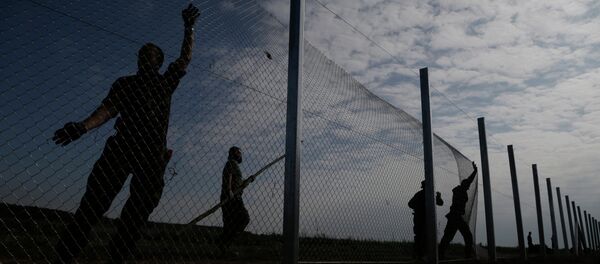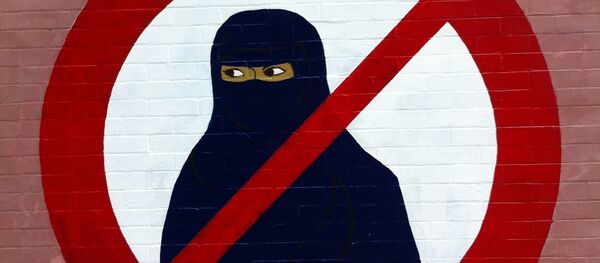On Sunday, German media reported that more than 3,500 attacks on refugees were carried out in Germany in 2016.
According to the Funke Media Group, which based its report on a parliamentary question fielded by the leftist party Die Linke in the Bundestag, 560 people were injured as a result of the attacks, 43 of them children.
There were 2,545 attacks on refugees outside the territory of their accommodation, and 988 attacks on refugee housing in 2016. Additionally, another 217 attacks were carried out on aid organizations or volunteer workers helping asylum seekers.
"Does there have to be a dead body before right-wing violence is categorized as a central issue of internal security and put at the top of the internal policy agenda?" Jelpke asked.
Georgina Siklossy, Senior Communication Officer at the European Network Against Racism (ENAR), told Radio Sputnik that the German authorities must do more to prevent the trend, which "reflects a growing trend of racist crimes targeting migrants across Europe."
The real number of attacks may be even higher because of under-reporting due to lack of trust in the police and the fear of asylum seekers that their cases may not be investigated properly.
"It is likely that these figures are just the tip of the iceberg, especially if migrants are undocumented; they will probably not report cases of racist crime for fear of being deported," Siklossy explained.
ENAR thinks that anti-migrant sentiments in political and media discourse have contributed to the attacks.
"There is an increasing representation in these discourses of migrants and ethnic and religious minorities more generally as a threat to European societies. This creates a climate of xenophobia and hatred which can and does then escalate into violence. It's also an issue of these anti-migrant sentiments being seen as increasingly acceptable in mainstream discourses."
Security threats arising as a result of migration are being taken seriously by the German government, but many hate crimes aren't investigated properly, Siklossy said.
"Far-right movements are not being taken seriously enough," she asserted, arguing that a public discourse which portrays migrants as a threat also contributes to individuals carrying out attacks.
"Parallel to increased security, it's also important to encourage dialogue … that's really important in a longer-term inclusion perspective."
In its written response to the parliamentary question, the German government condemned violence against refugees and asylum seekers "in the strongest terms" and pointed out that the rate of attacks decreased toward the end of the year.
In the fourth quarter of 2016, there were 403 attacks on refugees outside their accommodation, and 122 attacks on refugee housing. In the fourth quarter, 102 people were injured, 14 of whom were children. The federal government added that the figures are provisional and subject to revision.
"People who have fled their homeland and are seeking shelter in Germany can rightly expect that they will be safely accommodated," the government said.
Have you heard the news? Sign up to our Telegram channel and we'll keep you up to speed!




